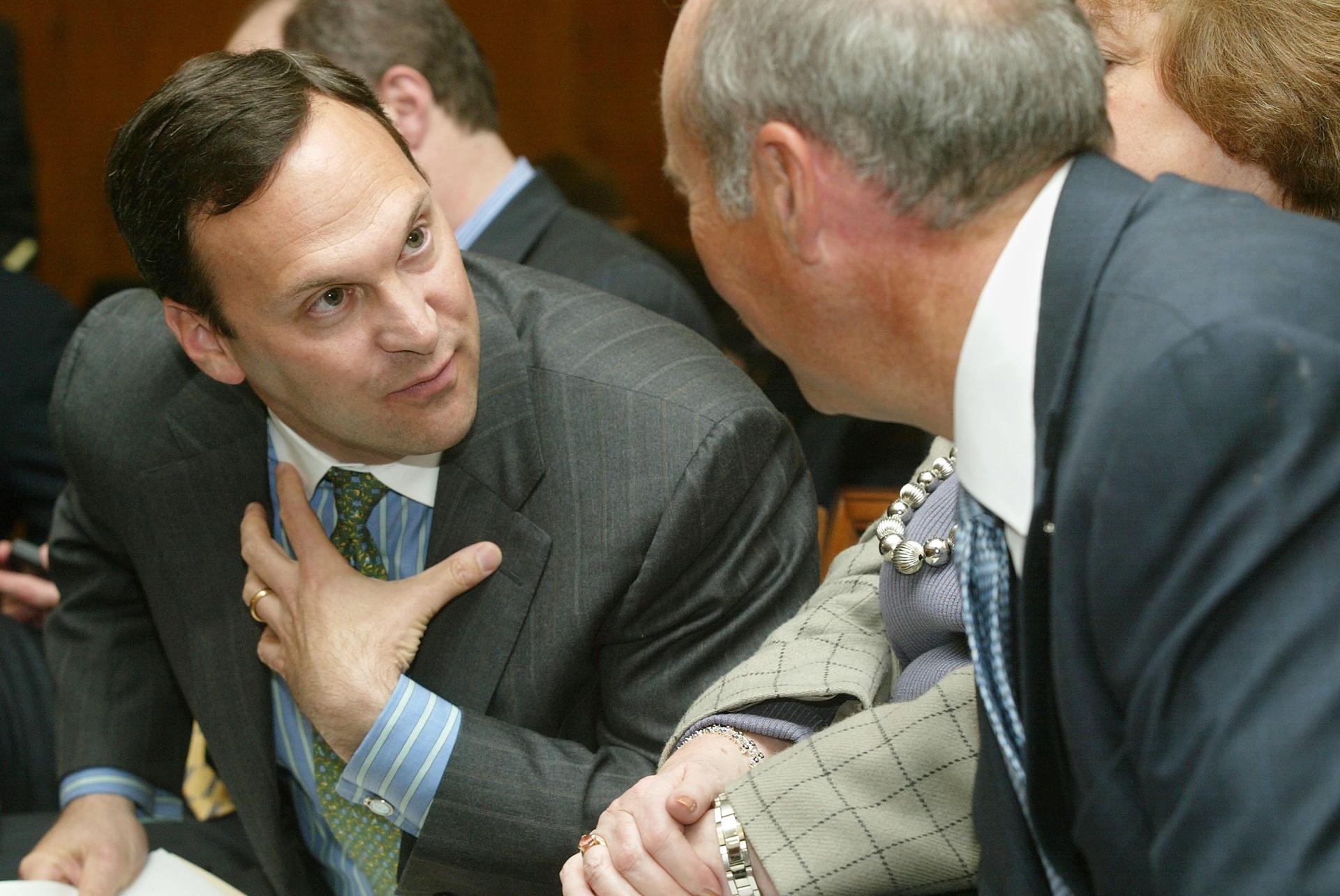US elections 2012: Can employers tell workers how to vote?
US Airways President and CEO David Siegel (left) speaks with Airline Pilots Association President Duane E. Woerth (right) on Capitol Hill, Jan. 14, 2003.
A flurry of emails from CEOs telling workers how to vote in November has raised a troubling question: Can a company legally tell workers how to vote?
For the most part, the answer is yes.
Election regulators and corporate lawyers say no federal election law specifically prevents employers from telling workers they could lose their jobs if they vote for a certain candidate.
The issue has come into public view after Westgate CEO David Siegel sent an email to his 7,000 workers saying that if President Obama is elected “I will have no choice but to reduce the size of this company.” (Read more: CEO to Workers: You'll Likely Be Fired If Obama Wins)
The news was followed with a missive from the Koch brothers to their 45,000 workers at Georgia Pacific that they could “suffer the consequences, including higher gasoline prices, runaway inflation, and other ills" if they voted for candidates not supported by Koch-owned companies or its political fund-raising arm.
According to In These Times, the “approved” list of candidates started with Mitt Romney and didn’t include any Democrats.
Arthur Allen, CEO of ASG Sofware, also sent employees an email saying, “If the US re-elects President Obama, our chances of staying independent are slim to none. … I don't want to hear any complaints regarding the fallout that will most likely come.”
Siegel said he was educating, not threatening, his workers. The Koch brothers said the information sent to workers was "purely intended to be considered among all the other information employees may be reading or receiving as an informed voter. We make it clear that any decision about which candidates to support belongs solely to our employees based on the factors that are most important to them, and this is in no way an attempt to 'intimidate' employees. Any such claim to the contrary is completely untrue."
Legal experts say there is no law that expressly forbids company executives from giving their political views or even threatening lay-offs if a certain candidate is elected. (Read more: Calfornia Squeezed By a 'Munger Sandwich')
A spokesperson for Federal Elections Commission also said there are laws that restrict employers from inducing employees to give money or fundraise for a certain candidate
But there are no federal election laws relating to voting recommendations or even implied threats.
“There is no specific federal law for this kind of communication, as far as I know” said Stacey Mark, an employment lawyer at Ater Wynne in Oregon who mostly represents companies.
She said that some states have laws forbidding coercion or voting pressure. Oregon, for instance, has a law preventing employers from using “undue influence” to “vote in a particular manner.” It’s unclear whether Florida or Georgia have similar laws.
Mark said that there should be federal legislation that prevents employers from telling workers how to vote, whether for Democrat or Republican.
“I don’t think employers should have that kind of power over their employees,” she said. “People are required to do a lot of things in an appropriate work environment. Employers can restrict speech, people have biases they are restricted from bring to work, and that’s not unreasonable. But voting is personal and I don’t think employers should be able to affect that.”
-By CNBC's Robert Frank
Follow Robert Frank on Twitter: @robtfrank
© 2012 CNBC.com
More from our partner CNBC:
CNBC: Cut taxes to boost US economy: Florida Governor Scott
CNBC: Meet Michael Corbat, Citigroup's new boss
CNBC: Trouble in Toyland: Sales slowing heading into holidays
Every day, reporters and producers at The World are hard at work bringing you human-centered news from across the globe. But we can’t do it without you. We need your support to ensure we can continue this work for another year.
Make a gift today, and you’ll help us unlock a matching gift of $67,000!
